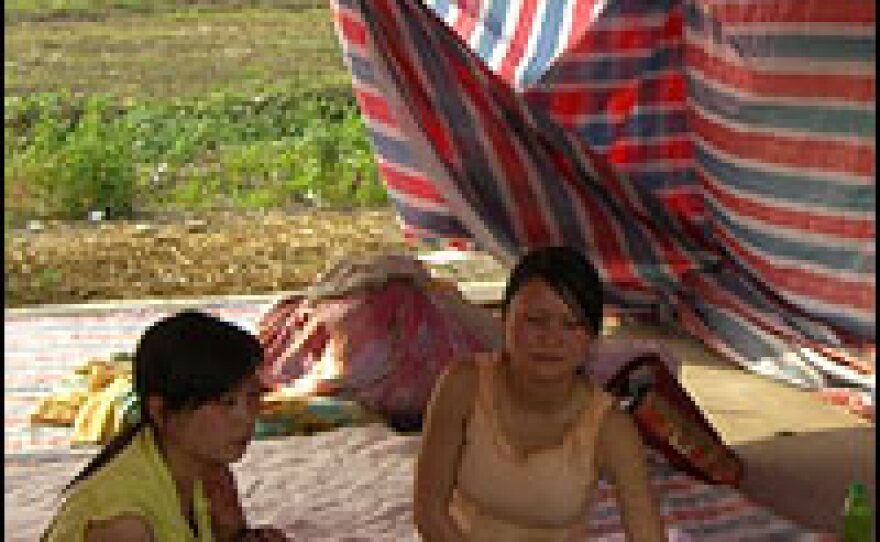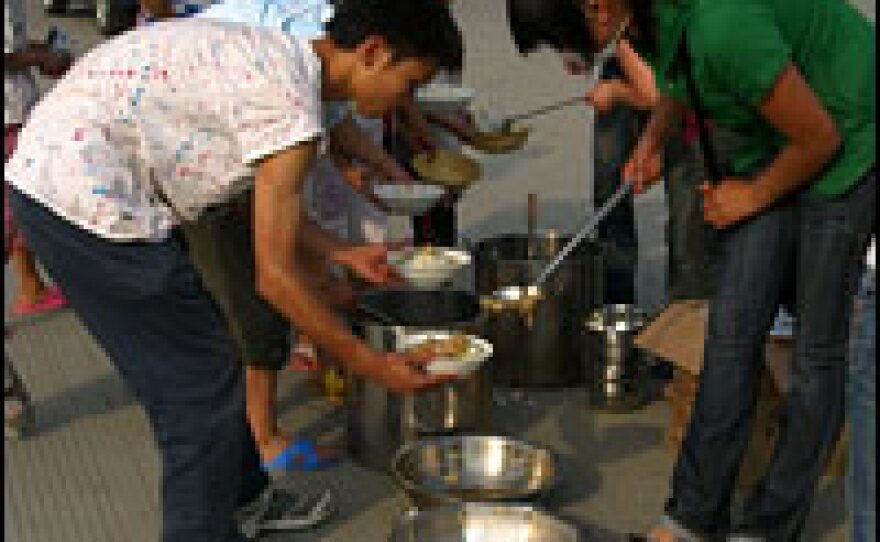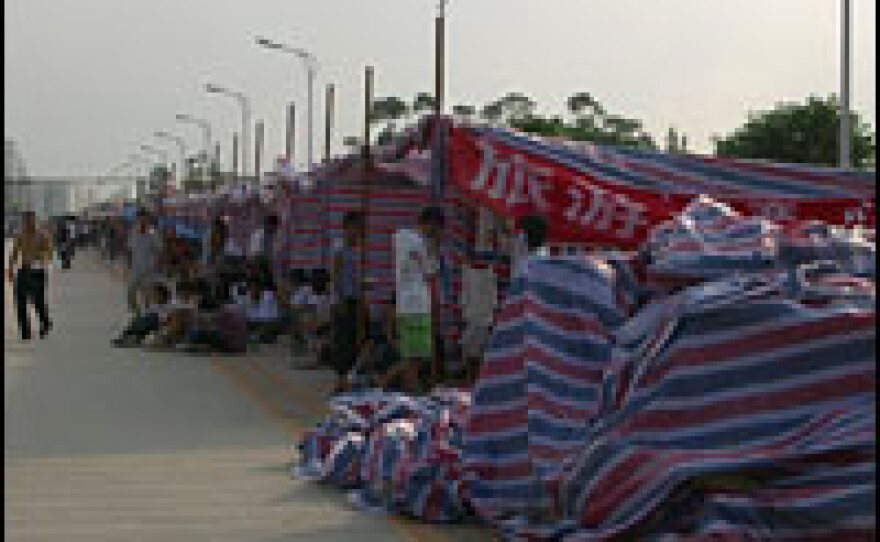



Relief efforts continue in China as the country begins mourning tens of thousands people who died in last week's earthquake. In the city of Shifang, in Sichuan province, officials are turning their attention to looming shortages of food and tents in areas devastated by the quake.
Arms laden with quilts, two young women are being taken to their new quarters. It's a space 10 feet by 20 feet, in a makeshift tent that runs for hundreds of yards along the main road. The structure is made up of blue-and-pink striped plastic sheeting thrown over steel scaffolding.
"It's good here," says 24-year-old Chen Huayu, looking around approvingly. She starts laying out the quilts on a raised wooden platform.
Their house in Hongbai was destroyed in the quake, she explains, and the past few nights they slept elsewhere. There was a huge storm, they were freezing and they had to hold down the flimsy tent to stop it from being blown away. Her 3-year-old daughter is covered in itchy bug bites. But they're not complaining.
"There are soldiers here to help out, so we feel safe," Chen Huayu says.
At dinnertime, volunteers dole out metal bowls of rice, cabbage and eggplant.
Living on the Streets
About 430,000 people live in this city and the surrounding area. An estimated 424,000 are now sleeping on the streets and being fed by the government, including 54,000 who are homeless. The others are unable to go home as their buildings still haven't had safety checks.
The deputy head of the city propaganda department, Zhou Ai, says it's too early to think about how to house people properly. Right now, the focus is on looming shortages.
"Right now what we really need is rice," Zhou says. "There's enough for the disaster victims to eat for the moment, but only for the short term. And we still need 50,000 standard tents. The tents people are sleeping in are temporary ones built from plastic sheeting and wooden sticks."
The local government has also been moved into tents, each one housing a different department. Helicopters fly overhead constantly.
In this place alone, several thousand people are still unaccounted for. Seven schools collapsed in Shifang; no one knows if the schools left standing can ever be used again.
Rebuilding to Cost Billions
When asked about the long-term consequences, the head of Shifang civil affairs bureau, Zeng Xianghua, rubs eyes his wearily. In the past week, he's had less than 10 hours sleep, and that on a wooden board beside his desk.
"We haven't finished calculating yet, but our losses are already billions of dollars," Zeng says. "Looking at the government income, if we don't have aid from wider society and from overseas, I think it will be very difficult for us to return to today's levels even in 30 years' time."
Even the hospitals have been moved into tents outside. Almost 32,000 Shifang people were injured in the quake. More than 7,000 are dead or buried in the rubble, presumed dead. For the living, there are no jobs to go to.
Amid the Loss, An Upbeat Mood
With little to do, many people lie in their tents listening to crackly radio reports. Others sleep. Some of the victims have already become volunteers. The mood is surprisingly upbeat.
"The government's been good to us," the older Chen sister says. "We're very thankful to them."
Her 20-year-old sister, Xiaoli, is even thinking ahead. She'd been running a clothing store before the earthquake.
"There's nothing left here," she says. "I'm going elsewhere to find a job. Lots of people think the same," she says.
Then the sisters spot some friends walking past.
"Where are you going?" the sisters shout, beckoning them in to sit down on the wooden platform that is now their home.
Copyright 2022 NPR. To see more, visit https://www.npr.org. 9(MDAzMjM2NDYzMDEyMzc1Njk5NjAxNzY3OQ001))






